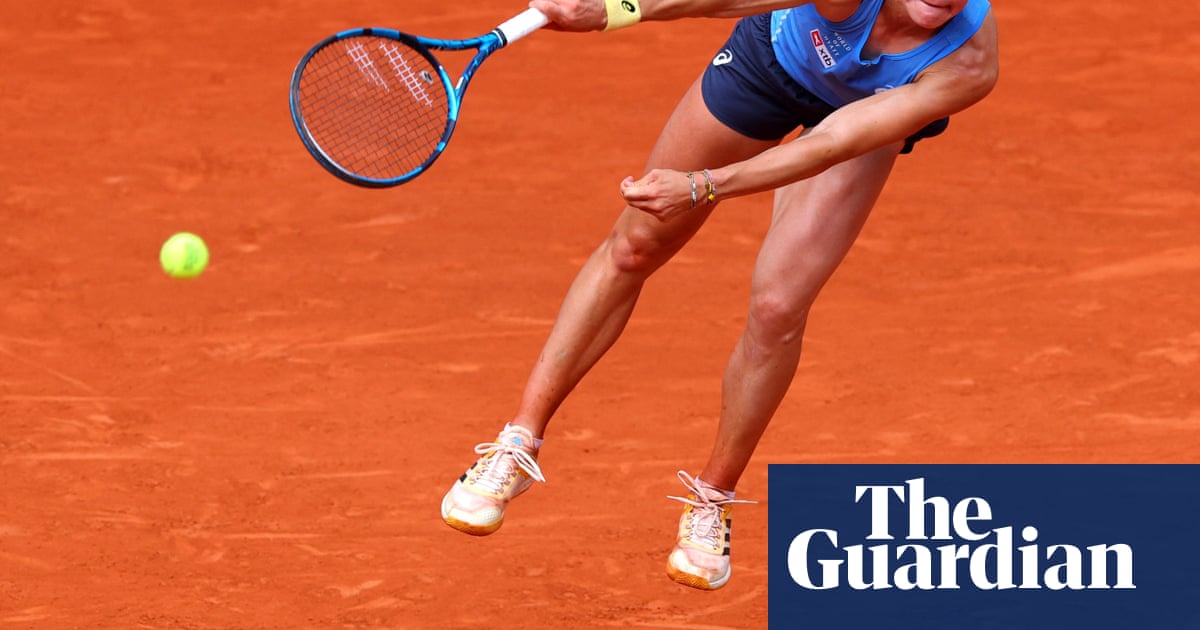The French wildcard Lois Boisson beat third seed Jessica Pegula to reach theFrench Openquarter-finals and send shock waves around Roland Garros. The 22-year-old, ranked No 361 in the world, stunned the American 3-6, 6-4, 6-4 to the delight of a delirious Court Philippe-Chatrier crowd.
Boisson’s only real claim to fame before this year’s tournament was when Britain’s Harriet Dart complained to an umpire about her, saying“tell her to wear deodorant”.
It was an emotional victory for Boisson, who was due to make her debut in Paris last year only to suffer a serious knee injury a fortnight before the tournament that kept her out of action for nine months. She will meet the Russian teenager Mirra Andreeva, the sixth seed, in the last eight.
Andreeva became the youngest player to reach back-to-back French Open quarter-finals in nearly three decades when she beat the 17th seed, Daria Kasatkina, 6-3, 7-5.
The powerful 18-year-old has scythed through the field without dropping a set and her fourth-round victory on Court Suzanne Lenglen helped her match the feat of Martina Hingis between 1997 and 1998.
“I’m so happy I won. I hate playing against her, we practise a lot and even that is a torture,” Andreeva said with a smile. “It was a hell of a match. I’m super happy I stayed calm in the second set when she raised her level … I had to fight and continue playing my game. I knew if I believed in myself I would win a third set.”
Andreeva came up with a tight hold to thwart her frequent practice partner in the seventh game and grabbed the break in the next game when Kasatkina sent a backhand long.
Russian-born Kasatkina, who switched nationalities this year, beat Andreeva in three sets when they met in last year’s Ningbo final and the 28-year-old showcased her fighting spirit in the next set to recover a break and lead 5-3. “My coach [Conchita Martinez] says you’ve got to practise with the people you don’t like. That’s why I practise with her because I hate her,” Andreeva said. “I knew this match would be tough.”
The second seed,Coco Gauff, brushed aside Ekaterina Alexandrova 6-0, 7-5 to also move into the quarter-finals and stay on course for her first title in Paris. The world No 2 must have thought she would have an easy morning session after powering through the first set but the Russian bounced back in the second to test the American.
Sign up toThe Recap
The best of our sports journalism from the past seven days and a heads-up on the weekend’s action
after newsletter promotion
“The whole match I played well. She stepped up her game in the second set. Overall, I thought I played great,” Gauff said. “I move well on clay, really comfortable with sliding and moving on the surface. The most physical surface for sure and I do well in that department.”
Hunting her first French Open crown after reaching the final in 2022 and semi-finals last year, the 21-year-old started fast, earning three consecutive breaks for a 5-0 lead in 15 minutes. Gauff was running her opponent ragged across the baseline, with Alexandrova, bidding to reach her first grand slam quarter-final, earning a mere five points until that stage.
Gauff, who has now won four of their five meetings, gave away five break points in the next game but still secured her first bagel of the tournament before Alexandrova got on the scoreboard at the start of the second set with her first hold.
The second seed kept her composure in a much closer set and will face the winner of the all-American fourth-round match between Madison Keys and Hailey Baptiste.
